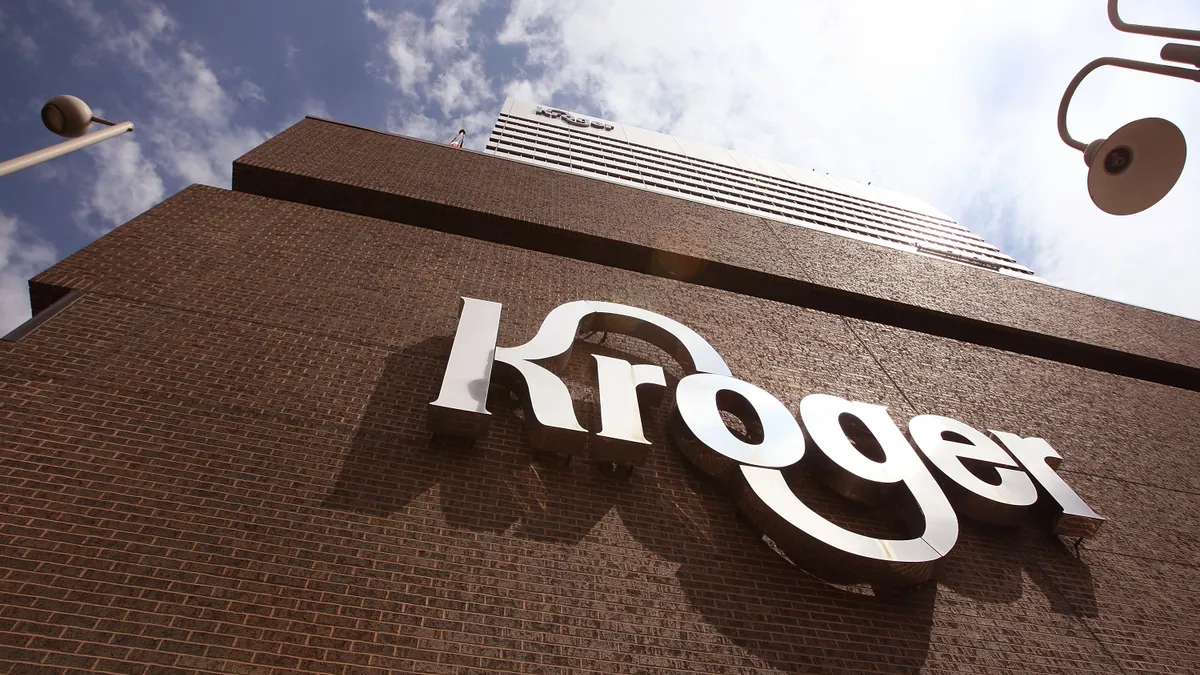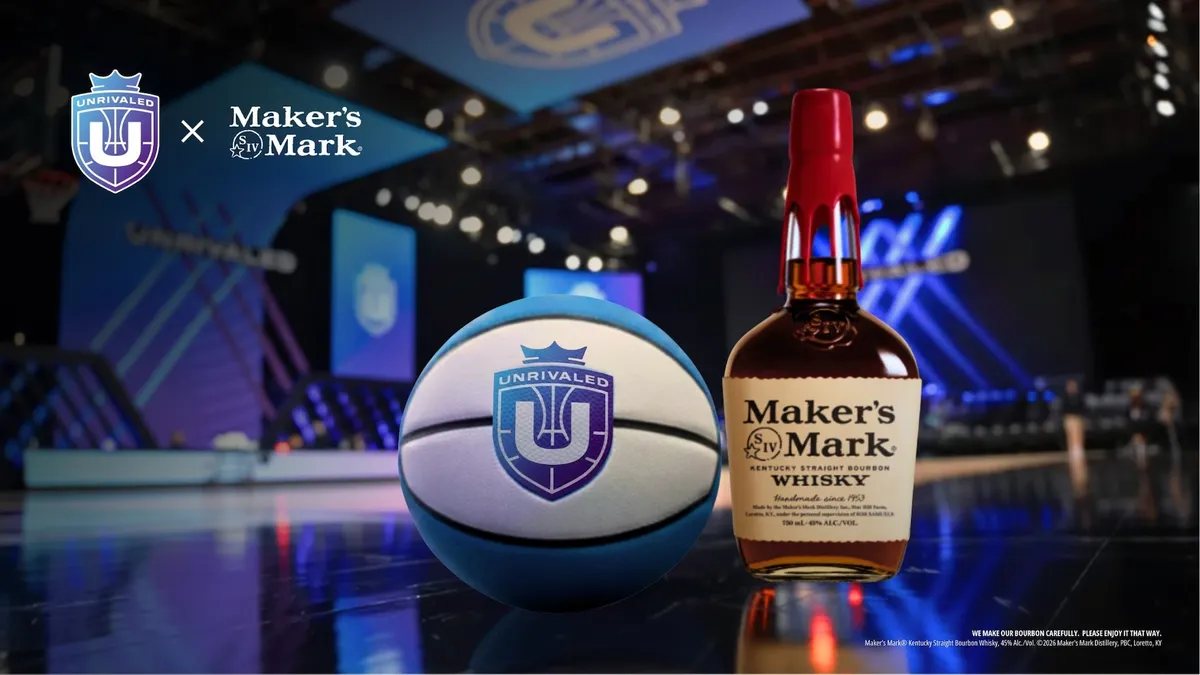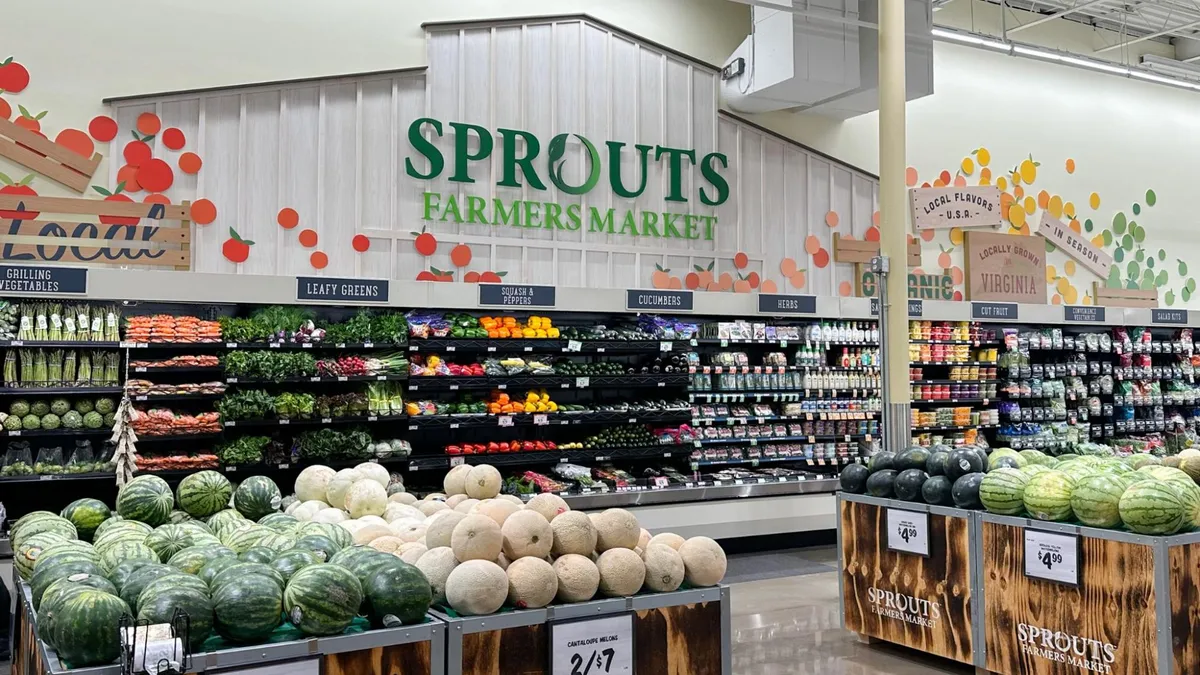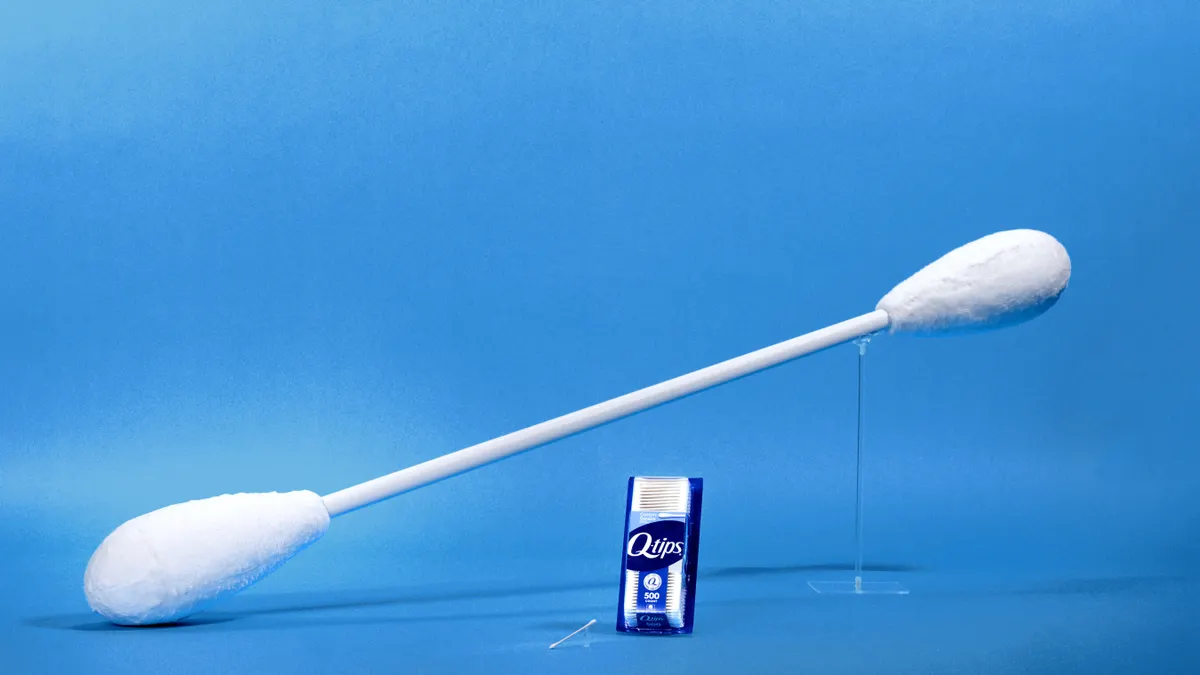NEW YORK — The race for retail media dollars continues to heat up with a field that, in the past year alone, added networks from Walgreens, Dollar Tree and, just last week, Lowe's. Kroger, which has operated its own offering in the space since 2017, on Wednesday unveiled its latest bid to attract more spending from the packaged goods category with the Kroger Private Marketplace, a private programmatic platform that allows clients to use their demand-side platform (DSP) of choice.
At Advertising Week, where the news was announced, executives said the marketplace's structure gives marketers and their agency partners greater oversight at a time when performance-driven channels are gaining importance but much of digital media remains frustratingly opaque and prone to measurement challenges.
"The significance of the private marketplace is really enabling flexibility, scale and control for how we can influence the programmatic choices for brands and how we can create these special consumer connections," Cara Pratt, senior vice president of Kroger Precision Marketing (KPM) at 84.51°, told Marketing Dive during an interview. 84.51° is Kroger's data and analytics unit that formed as part of its acquisition of Dunnhumby's assets in 2015.
The Kroger Private Marketplace draws on Kroger's troves of first-party shopper data — the grocery chain is the largest in the U.S., serving 60 million households annually, per company estimates — to generate what Pratt called "pre-optimized audiences." Those are intended to help brands better hit campaign targets, whether they be sales, consideration or general awareness. Kroger claims it captures shopper data on 96% of transactions tethered to its loyalty program, while the marketplace attempts to protect consumer privacy through a "deal ID."
"We essentially are fortunate to have decades of trusted relationships with consumers, and so we can longitudinally evaluate their behavior over time," Pratt said.
The rollout also marks the first time clients can get self-service access to KPM's targeting solutions, retail performance metrics, and quality controls like verification and brand safety tagging. KPM previously offered only managed services. Publicis Groupe was the first ad holding group to alpha test the private marketplace, while Nestle, General Mills, Mondelez and Danone were among its early brand partners.
"They're very pleased with the results and the flexibility that we're enabling their agencies, on their behalf, to take advantage of," Pratt said.
The executive believes broader market trends, particularly the current focus on performance-driven media, are pushing more brands to adopt a programmatic mindset that will benefit the Kroger Private Marketplace in the long run. EMarketer forecasts U.S. ad spending on programmatic display advertising will hit $97 billion in 2021, a 20% year-on-year increase.
"Right out of the gates, we are releasing everything in programmatic display with other channels as a fast follow," Pratt said. "Obviously, video and CTV are hot, and so we're excited to continue to expand our assets into channels that matter most for both marketers and for consumers."
Focus on flexibility
KPM has steadily gained traction since launching four years ago. Demand for retail media has generally skyrocketed in the wake of Google announcing plans to deprecate third-party cookies, a seismic shift in digital that's put a premium on first-party solutions.
"Every marketer, anybody in ad tech recognizes that it's inevitable and it's not a bad thing," Pratt said of the cookie changes, which will take hold in 2023. "We need to continue to transform the industry in meaningful ways."
"The significance of the private marketplace is really enabling flexibility, scale and control for how we can influence the programmatic choices for brands and how we can create these special consumer connections."

Cara Pratt
Senior vice president, Kroger Precision Marketing at 84.51°
CPGs, which historically have not owned the point of sale, are among the most eager to find new ways to tap into first-party sources. More than 1,300 brands engaged with KPM's portfolio last year, per Pratt. Eighty-five percent of clients who used its retail media services in 2019 returned in 2020, though the unit has yet to break out its figures for this year.
"By and large, all of the top CPGs and brands, I think, really recognize and respect the power and the opportunity of retail media," Pratt said. She indicated that CPGs are reassessing their internal marketing structures to better capitalize on tech opportunities. That includes CMOs increasingly juggling functions traditionally handled by the CIO or CTO.
"There's a lot of organizational change that's happening," Pratt said. "I can tell you that now more than ever, we're certainly hearing it's not just about efficiency, it's about effectiveness."
Along with the move into self-service, the Kroger Private Marketplace looks to cast a wider net by not pigeonholing clients into using particular ad-tech providers.
"You've got to be really choiceful in where you want to reduce friction points for different talent within the media supply chain that's influencing buys," Pratt said. "The fact of the matter is, there are several DSPs that are very powerful, and we didn't want that to be a cause for brands or agencies to not feel like they could really lean in and take advantage of the new level of media accountability that we can bring forward."
Pratt didn't make direct reference to any DSPs, but competitors have forged close ties with firms in the ad-tech category. Walmart, for instance, recently introduced a proprietary DSP developed with The Trade Desk. Walmart DSP serves as a significant test of whether a retailer can build and scale its own ad-tech solution. The big-box store first partnered with The Trade Desk to support its Walmart Connect media network in January.
Pressure-proof
Of course, Kroger Private Marketplace is expanding during a period when CPGs are under immense pressure in areas outside of marketing. Supply chain and related inflation challenges are currently roiling the sector in the ramp-up to the key holiday period. However, those factors — a major topic hanging over Advertising Week — didn't seem to phase Pratt, who said they haven't created a measurable impact on demand.
"You can look at a lot of the top CPGs, and they're making public statements around now's the time that they need to be doubling down on marketing," she said without naming specific companies.
One needn't look far to see what she's talking about. In its earnings report this week, Procter & Gamble indicated it would continue to invest in marketing at the same levels in the months ahead, but put a bigger emphasis on efficiency.
"There's a massive opportunity for [CPGs] to continue to elevate their voice in the marketplace, agnostic of what their full supply chain looks like," Pratt said. "So it hasn't had a significant impact on the business."





















